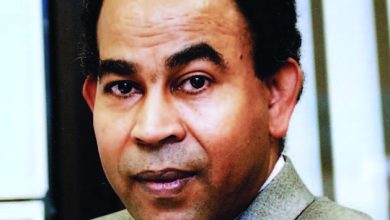Uncovering Alternative Narrative in Context of Justifying the War

By: Amjad Farid
This writing comes in the context of a direct discussion of what was written by Senior Engineer Khaled Omar Youssuf in response to uncovering the alternative narrative thesis that they are trying to produce and promote in the context of justifying the militia war in which the direct reference was replaced by continuing to promote the lies they broadcast about the trumpets of war and other descriptions with which they try to cover up the inconsistency of their logic and position in justifying the militia war. But that’s okay. We will also respond to it as a response deserves, because the issue is related to a homeland that we have no other and whose ownership we all share, and a war that we aspire to actually stop, and not by devoting the call to stop it to serve other internal or external political interests or goals.
The narrative of linking this war, which is taking place between the RSF and the Sudanese army forces, with revolutions of the margin – both peaceful and armed, as Khaled put it – is a fragmented narrative that attempts to find a moral justification for the militia war in the context of the internal and external connections that bring them together. Its indiscretion does not need much ink to uncover it. The ongoing crimes and violations of the RSF against the Masalit and Zaghawa communities and other Sudanese marginal communities, which included organized displacement, mass murder, rape, sexual slavery, persecution, starvation siege, and other things, are enough to uncover them alone, and when we add to them the violations that the militia has continued to commit in the countryside of Gezira and the various neighborhoods of Khartoum, we find ourselves facing a comprehensive criminal system. This is not to mention that the revolution that we have been working for is an accumulation of collective action aimed at achieving the interests of an association of the people of Sudan, and not to plunder, displace, rape and displace specific social groups in Sudan. The revolution is a positive, constructive act, not an exercise in revenge, and certainly not the practice of crime that we witnessed with our own eyes committed by the RSF militia.
The attempt to portray RSF as a tool of revolutionary action or its crimes and actions in the midst of this war as steps on the path to structural reform of state institutions – and products of the post-colonial state (Bien venu) – is an active effort to prolong its duration and thus prolong the suffering resulting from it and resulting mainly from violations committed by the militia. Just as stopping the war will not happen by defending the parties fighting it or trying to maintain their current institutional forms.
The correct definition of this war is that it is taking place between two bad parties, both of which are products of the colonial state, which also produced the health system in Sudan, the University of Khartoum, and Khortaqt Secondary School. These are state institutions that need reform, and their corruption and deviation from performing the roles assigned to them cannot be reformed by replacing them with a private sector. Likewise, the army, which is a state institution that needs reform to perform its required role, and this does not happen by replacing it with a private sector militia, owned by one individual and his family members, and with economic, external and political extensions, let alone its inherent fascist nature, since its establishment as a tool of oppression and criminality in the service of a regime that we revolted to bring it down and erase its effects. The war broke out on April 15, 2023, when this militia attempted to seize control of the entire state apparatus in order to provide for its continued independent institutional survival (which is some of what the ousted Bashir regime bequeathed to us and our inability, in light of the tension between the two governments of the transitional period, to reform it) with all the privileges that this institutional independence provides does not serve the Sudanese people in any way. Rather, it is being harnessed to serve regional axes and interests, which have not hesitated to support the continuation of this war.
This war is not fought between a noble party representing the margin and an evil party representing the center. This war is taking place between two bad parties, a militia of a criminal, fascist nature that relies on violence, oppression, systematic criminality, profiteering, and cross-border conscription to serve its interests of its regional patrons, and a corrupt state apparatus that needs deep and structural reform. Trying to misuse the complexities of political history in Sudan to find a justification for this or that party is to participate in prolonging the war by (faking) a clear diagnosis of the nature of the crisis in Sudan. This fraudulent diagnosis is not different from what the platforms affiliated with the Taqaddum coalition publish, spreading lies and distorting facts to an astonishing excess. Fascism is contagious by nature, and the exercise of media hegemony is one of its defining characteristics.
Khaled Omar does not practice this fraud out of his naivety or ignorance of its truth, but rather it is carried out in a political line that harms Sudan, the Sudanese, and the survival of the Sudanese state. This is a political line that must be fought in order to end this war and preserve the existence and independence of our country. Surrendering to such a corrupt analysis aspires to impose a new reality of dividing power between those who carry weapons and their allies, and this is the worst that could happen to the future of Sudan. Reforming the military institution – and all state agencies – does not happen by merging the corrupt elements with each other into a large corrupt mixture… This is excessive stupidity that will poison the one who calls for it first. Reducing the military security reform process to simply merging forces and unifying their leadership is not correct and will only lead to more military coups, more militarization of life, and the “militiation” of repression and resistance.



